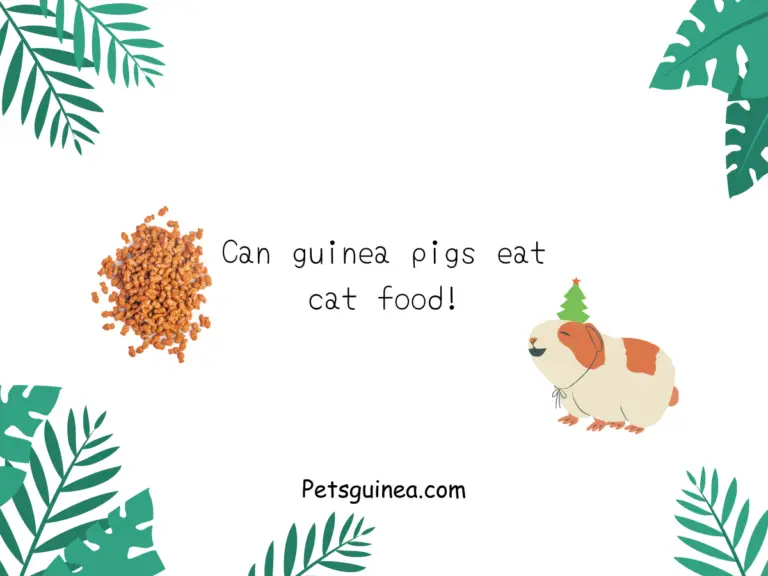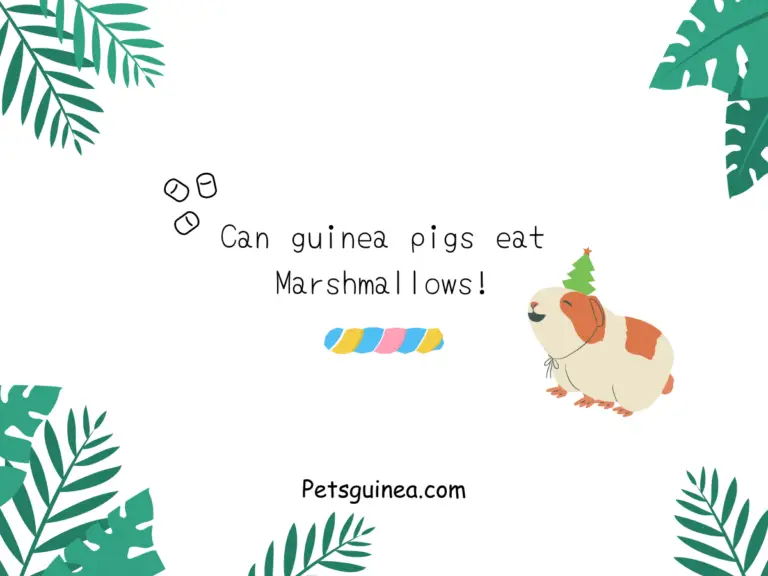Can Guinea Pigs Eat Ginger?
Ginger, a beloved spice in human culinary ventures, has garnered attention for its capability and health benefits. But what about our furry companions, guinea pigs? Can they indulge in this aromatic root without repercussions? Let’s delve into the intriguing world of guinea pigs and ginger to uncover the truth.
Quick Facts on Ginger
- Ginger is a flowering plant originating from Southeast Asia.
- It is renowned for its distinct flavor and medicinal properties.
- Ginger contains bioactive compounds like gingerol, known for their antioxidant and anti-inflammatory effects.
Do Guinea Pigs Like Ginger?
With their sensitive taste buds, Guinea pigs may not find ginger as appealing as humans. While some may nibble on it out of curiosity, it’s not a natural part of their diet.
Can Ginger Be Bad for Guinea Pigs? | Possible Risks
While ginger offers health benefits to humans, it may pose risks to guinea pigs. The high fiber content and pungent taste could upset their delicate digestive systems, leading to discomfort or digestive issues.
Are Guinea Pigs Allergic to Ginger?
Guinea pigs, like humans, can have allergies. While ginger allergies in guinea pigs are rare, monitoring them for any adverse reactions is essential if they are introduced to ginger for the first time.
Side Effects of Ginger for Guinea Pigs
- Digestive upset: Ginger’s intense flavor and fiber content may cause diarrhea or gastrointestinal discomfort in guinea pigs.
- Allergic reactions: In rare cases, guinea pigs may exhibit allergic reactions such as itching, swelling, or respiratory issues.
How do you recognize (Symptoms) that my Guinea Pets eat ginger?
- Diarrhea or loose stools
- Abdominal discomfort (hunching, reluctance to move)
- Decreased appetite
- Lethargy
- Signs of discomfort (teeth grinding, vocalization)
Can Guinea Pigs Eat Ginger Leaves?
While ginger leaves are not toxic to guinea pigs, they’re not a recommended part of their diet. Their high fiber content may be complex for guinea pigs to digest, leading to digestive issues.
Can Guinea Pigs Drink Ginger Tea?
It’s not advisable to give guinea pigs ginger tea. The caffeine content and potential additives could harm their health. Stick to plain water as their primary source of hydration.
Health problems can occur if guinea pigs eat ginger:
If guinea pigs consume ginger in large quantities or regularly, they may experience:
- Digestive upset
- Nutrient imbalances
- Discomfort or pain
- Allergic reactions
What to Do if Your Guinea Pig Has Eaten Wild Gingers?
If you suspect your guinea pig has ingested wild gingers different from culinary ginger, monitor them for additional signs of illness & contact your veterinarian immediately and if you notice any adverse reactions.
Nutritional Value of Ginger
While guinea pigs don’t require ginger in their diet, it’s essential to understand its nutritional composition:
- Low in calories
- Contains minerals & vitamins such as vitamin C, potassium, and manganese
- Rich in antioxidants
conclusion
while ginger offers numerous human health benefits, it’s not a suitable dietary addition for guinea pigs. Their sensitive digestive systems and unique nutritional needs require a diet primarily consisting of hay, vegetables & a small amount of pellets. As responsible pet owners, it’s crucial to prioritize their well-being and avoid introducing potentially harmful foods like ginger into their diet.
Always consult a veterinarian for personalized advice regarding your guinea pig’s diet and health when in doubt.
FAQs:
While ginger is safe for humans, it’s not recommended for guinea pigs. Their sensitive digestive systems may not tolerate ginger well, which could lead to digestive upset or discomfort.
It’s best to avoid giving guinea pigs ginger altogether. Even in moderation, the intense flavor and fiber content could cause gastrointestinal issues for these delicate pets.
Absolutely! Guinea pigs thrive on a diet rich in hay, fresh vegetables & small amounts of pellets. You can offer them a variety of safe veggies like bell peppers, kale, and carrots as treats instead of ginger.
Providing a balanced diet for your guinea pig involves offering a diffrent variety of vegetables, high-quality hay & a small amount of pellets. Consult your veterinarian for personalized dietary recommendations based on your guinea pig’s age, weight, and health status.
Besides ginger, avoid feeding your guinea pig foods high in sugar, salt, or fat, as well as toxic foods like chocolate, caffeine, onions, and garlic. Stick to a diet consisting primarily of hay, fresh vegetables, Lentil Sprouts and pellets explicitly formulated for guinea pigs.







